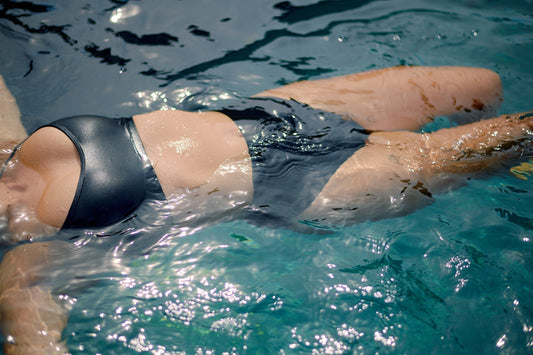
Why Are We Still Fighting Getting Older?
Guest BloggerAging is something that I’ve always felt weird about, particularly since entering my thirties a few years back. When I look in the mirror, I can accept and even like almost everything (which has been a long and arduous journey on its own), but I struggle with feeling anything but distress about newly etched-in fine lines or gray hair growth. I hate that I feel this way, but I know I’m not the only one. We’ve learned to love our rolls, our stretch marks, our birthmarks, and even our periods—so why are we still so obsessed with looking young? And, more importantly, how can we stop the obsession?
The way we talk about our bodies, in many respects, has had a near-complete overhaul in the past few years. In marketing campaigns, we’re seeing more realistic, unretouched depictions of what we look like instead of the highly manipulated photos we were used to seeing before. There’s also (finally) much more body and racial diversity, both in advertising and in media. Loving ourselves as we are is the movement of the moment, but one thing still feels missing from the conversation—how we think and feel about aging.
It’s no secret that people who identify as women experience extra pressure to hold on to youth for as long as they can. This comes from the idea that women’s currency goes down as they get older, while men only get better (and more attractive) with age. As writer Nickie Kinickie put it, “Even the terminology is nicer for men; as they age they’re are described as ‘dashing’ or a ‘silver fox’ and women are ‘old hags’ or ‘spinsters.’” Some argue that this all boils down to biology and evolution, but it’s more likely rooted in misogyny than anything else.
The beauty industry plays a big role in perpetuating the idea that younger is better. “Skincare” products, which are really just anti-aging products hidden behind self-care language, continue to be the most profitable category in the beauty industry. People are getting rich off our insecurities and reinforcing them in the process. But if we’re able to prove to beauty brands that we’re less hung up on age by spending less money on anti-aging products, we might be able to put an end to that. (Also, it’s worth noting that many brands’ claims that products will shave decades off your appearance can’t possibly be true.)
Sadly, though, the idolization of youth doesn’t exist only in the beauty industry. It’s something we have to address throughout all advertising, which is a big chunk of the media we consume on the daily. Thankfully, brands spanning many industries are starting to feature a range of ages in ads. Increased representation could be the key to age and aging acceptance. As the editor of Riposte wrote for Refinery29: “It’s important for us to represent women of all ages so that those women feel seen and heard but also to offer role models for younger women; to show that life for a woman doesn’t stop at 50—if anything, it gets better.”
Brands aren’t the only ones who’ve recently realized that people of all ages are worth featuring. Earlier this year, almost half of the nominees for the Oscar for best actor and best supporting actor were over 60. Netflix also has two popular series, “The Kominsky Method” and “Grace and Frankie,” featuring actors in their 70s and 80s. Seeing older characters leading great lives on screen, even if they’re fictional, can replace the fear of aging with an excitement for what’s to come.
Though changing the beauty industry and increasing the representation of people of all ages across all forms of media aren’t in our control, one thing certainly is: We can shift how we talk about aging entirely. We can stop questioning people’s outfit choices because of how old they are or saying that someone “looks good for their age.” We can stop judging people when their lifestyles don’t match up to their ages based on our assumptions. We can start repositioning each line or gray hair as signs of a life well-lived instead of evidence that we’re losing our most precious commodity.
For some people, letting go of monthly hair-color touch-ups and going full-on gray has been empowering. Sticking with your natural hair color instead of covering it up (like I feel compelled to do and wish I didn’t) can feel like a simple act of defiance. Just like welcoming any other sign of aging instead of preventing it, letting your hair grow gray, especially at a younger-than-expected age, is like a middle finger to beauty conventions. The little things we can do as individuals to repackage aging in a positive light will help chip away at societal pressures to stay young.
What we need to remember is that nothing can truly stop us from aging—it’s a very natural part of life that happens to us whether we want it to or not. Getting older might change our bodies or the way we look, but it gives us a whole lot more than it takes away. When we age, we gain experience, knowledge, and insight. We progress in our careers and pick up new hobbies. We figure out what life even is and get better at living it each day. If aging is unavoidable, what’s the harm in leaning into it and enjoying it? If Grace and Frankie’s lives are any indication, there’s a lot to look forward to.
Sarah duRivage-Jacobs is a freelance reproductive health writer and editor who lives in New York City with her creamsicle cat, Jasper. She's obsessed with words (and puns) and doesn't believe in the concept of TMI. Find her at @sarahdurivagejacobs and www.sarahdurivagejacobs.com.
Photo by Septian simon on Unsplash




